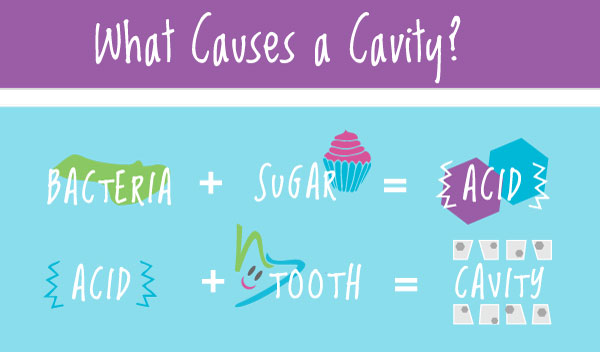Below are common questions and our answers about the best way to care for you child's teeth.
When should I schedule my child’s first visit to the dentist?
We recommend you make an appointment to see us as soon as your child gets that first tooth. The American Academy of Pediatric Dentistry recommends that children see a dentist by their first birthday.
What does my insurance cover?
Many plans offer in-network and out-of-network coverage. Often the difference in coverage is minimal. For more insurance information CLICK HERE.
How is a pediatric dentist different from other dentists?
All dental specialists (pediatric dentists, orthodontists, oral surgeons, and others) begin by completing dental school and then continue their education with several years of additional specialized training. During this additional training in the field of pediatric dentistry, our doctors gained extensive knowledge and experience in treating infants, children, and adolescents.
Pediatric dentists are like the pediatricians of dentistry. They not only enjoy working with children but bring to each patient expertise in childhood development and behavior management. Because our office is geared toward young visitors, you will find that our staff, our office design, decorations, and activities all work together to provide an especially friendly and comfortable environment for children.
What happens during my child’s first visit to the dentist?
The first visit is usually short and simple. In most cases, we focus on getting to know your child and giving you some basic information about dental care. The doctor will check your child's teeth to look for any potential problems with the gums and jaw. We will clean your child's teeth if they are ready.
We will also answer any questions you have about how to care for your child’s teeth as they develop and provide you with materials that contain helpful tips you can refer to at home.
How can I prepare my child for his or her first dental appointment?
The best preparation for your child’s first visit to our office is to maintain a positive attitude. Children pick up on adults’ apprehensions, so if you make negative comments about the dentist, you can be sure your son or daughter will anticipate an unpleasant experience and act accordingly.
Show your child pictures of the office and staff on the website. Teach them about healthy teeth and gums and tell them the dentist is there to help them. Remember our dentists are trained to handle fears and anxiety, and our staff excels at putting children at ease during treatment.
How often should my child visit the dentist?
We generally recommend scheduling checkups every six months. Depending on the circumstances of your child’s oral health, we may recommend more frequent visits.
Baby teeth aren’t permanent; why do they need special care?
Although they don’t last forever, your child’s baby teeth play an important role in their dental development. While they are in place, baby (or primary) teeth help your child speak, smile, and chew properly.
They also hold space in the jaw for permanent teeth. If a child loses a tooth too early (due to damage or decay), nearby teeth may encroach on that space, which can result in crooked or misplaced permanent teeth. Your child's general health is affected by the health of the teeth and gums. Untreated dental cavities can lead to pain and infection.
What’s the best way to clean my baby’s teeth?
Even before your infant’s first tooth appears, we recommend you clean the gums after feedings with a damp, soft washcloth. As soon as the first tooth appears, you can start using a toothbrush.
Choose a toothbrush with soft bristles and a small head. You can most likely find a brush designed for infants at your local drugstore.
At what age is it appropriate to use toothpaste to clean my child’s teeth?
Once your son or daughter has their first tooth, you can start using toothpaste on the brush. Use only a tiny amount of fluoridated toothpaste (the size of a grain of rice) for each cleaning. Children under four rarely know how to spit so they will likely swallow whatever you give them. Swallowing too much fluoride toothpaste can stain permanent teeth developing below the gums.
You should brush your child’s teeth until he or she is ready to help with that responsibility, which usually happens by age six or seven. We recommend staying involved with brushing until age ten.
What causes cavities?
Certain types of bacteria live in our mouths. When they come into contact with sugary foods, they produce an acid that attacks the teeth. These acids eventually eat through the enamel and create holes in the teeth, which we call cavities.

How can I help my child avoid cavities?
Make sure your child brushes his or her teeth at least twice a day with fluoride toothpaste. Flossing daily is also important, in order to clean between the teeth where brushing does not reach.
Check with our team about a fluoride rinse, which strengthens tooth enamel and makes it more resistant to decay. Avoid sugary foods and drinks, limit snacking, and maintain a healthy diet.
Finally, make regular appointments so we can check the health of your child’s teeth and provide professional cleanings.
Does my child need dental sealants?
Sealants cover the pits and fissures in teeth that are difficult to brush and therefore susceptible to decay. Not everyone has deep pits but for those who do, we recommend sealants as a safe, simple way to help your child avoid cavities, especially for molars, which are hardest to reach.
My child plays sports; how can I protect his or her teeth?
Even children’s sports involve contact, so we recommend mouthguards for children active in sports. If your child plays baseball, soccer, or other sports, ask us about having a custom-fitted mouthguard made to protect the teeth, lips, cheeks, and gums.
What should I do if my child sucks a thumb?
The majority of children suck their thumbs or fingers as infants. Most grow out of it by the age of four without causing any permanent damage to their teeth.
If your child continues sucking after permanent teeth erupt, or sucks aggressively, let us know and we will discuss it with you.
When should my child have dental x-rays taken?
We recommend taking x-rays as soon as your child is able, usually around age four. X-rays help us to see the surfaces of the teeth that are touching and not visible in the mouth.






